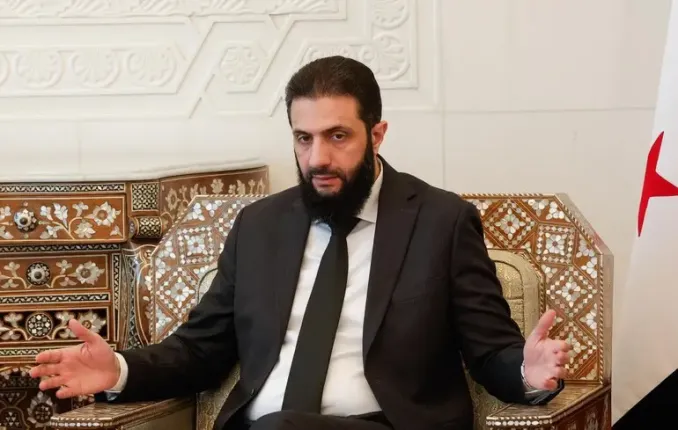Syria and Russia deepen strategic partnership: a new phase of cooperation and diplomatic negotiations

In Moscow, a significant meeting took place between Syrian President Ahmad al-Sharaa and Russian President Vladimir Putin, signaling an intensification of bilateral relations between the countries.
This event marked the first official and decisive step toward a new era of agreements and cooperation, as the Syrian leader arrived in Moscow aiming to strengthen strategic partnership and discuss relevant regional political issues.
The summit emphasized the restoration of diplomatic and economic ties, particularly in energy and military cooperation, which have long been indicators of mutual trust and collaboration.
Al-Sharaa highlighted Syria’s ambitions to restore its lost regional stature and maintain close ties with Russia, which remains a key strategic partner.
Additionally, he emphasized that Syria is actively working towards regional stability, aligning with Russia’s interests, especially in the energy sector, where Russian expertise is crucial for Syria.
The visit follows months of active dialogue between the Syrian Foreign Ministry and Russia, including high-level meetings and delegations.
Discussions also covered the protection of Russian military bases and Syria’s political future, critical components of bilateral relations.
The Syrian delegation was led by Foreign Minister Assad Hassan al-Shaybani, alongside top military and intelligence officials.
Russia has promised investments and financial support, along with assistance in maintaining its military bases in Syria.
However, these agreements have also fueled internal tensions — notably, concerns among the Syrian population regarding the future of President Bashar al-Assad, whom Russia previously considered for arrest warrants.
A diplomatic source notes that stabilizing the situation and safeguarding the interests of both nations remain priorities.
Overall, this visit signals a new chapter in Syria-Russia relations, oriented toward long-term partnership and regional stabilization, with potential expansion into political and economic cooperation.

